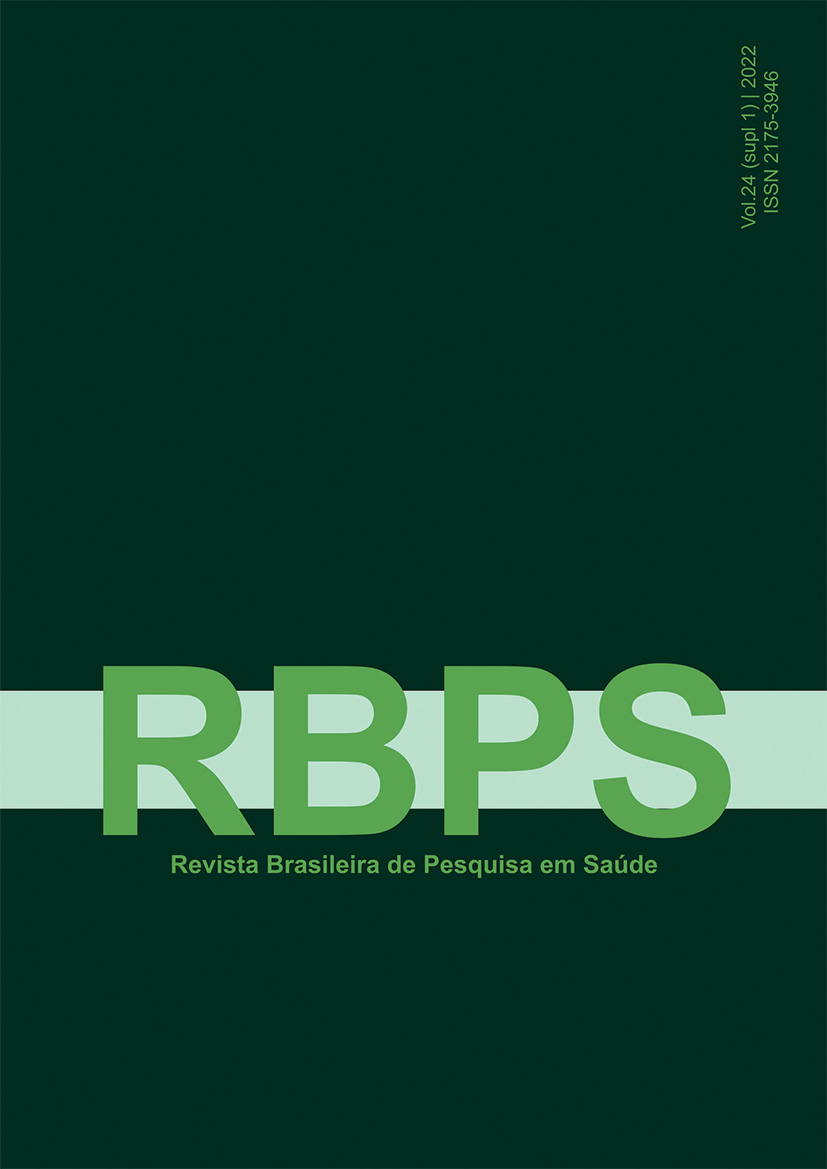View of health professionals of neonatal units of public and philanthropic hospitals of Espírito Santo (brazil) on the Kangaroo Method
DOI:
https://doi.org/10.47456/rbps.v24isupl_1.39713Keywords:
Maternal and child health, Neonatology, Kangaroo-mother care method, Comprehension, Patient care teamAbstract
Introduction: Despite the positive results in the scientific studies of the Kangaroo, there are difficulties in its implementation and dissemination in the health system, such as the lack of resources (human and financial) and differences in theoretical and practical knowledge. Objectives: To identify differences as theoretical and practical methods on methods that can be used among professionals working in Neonatal Units of public and philanthropic hospitals in the state of Espírito Santo, as well as the profile of health professionals working in these services. Methods: Evaluation study with a survey research character, with a qualitative approach, approved under CAAE 42652621.5.0000.5060. Data collection was carried out by an electronic periodical (Google Forms), containing open and closed questions, from May to October 2020, 28 participants from four institutions participating in the research. The recorded data were analyzed using descriptive statistics. For qualitative data, an approach to content analysis was performed. Results: All female professionals were observed, most of them aged between 31-40 years. A hospital has most professional categories. It was found that professionals have difficulties in understanding and implementing the method presented in its entirety. The reasons were cited as several barriers and facilitators for the team's adherence and implementation of the method. Numerous benefits were listed by professionals. Conclusions: Education becomes necessary that the difficulties for the implementation and adherence to the Kangaroo method are in depth and the education practices intensified, associated with investments in humanization, continued and infrastructure.
Downloads
Downloads
Published
How to Cite
Issue
Section
License
Copyright (c) 2022 Brazilian Journal of Health Research

This work is licensed under a Creative Commons Attribution-NonCommercial-NoDerivatives 4.0 International License.
Authors and reviewers must disclose any financial, professional, or personal conflicts of interest that could influence the results or interpretations of the work. This information will be treated confidentially and disclosed only as necessary to ensure transparency and impartiality in the publication process.
Copyright
RBPS adheres to the CC-BY-NC 4.0 license, meaning authors retain copyright of their work submitted to the journal.
- Originality Declaration: Authors must declare that their submission is original, has not been previously published, and is not under review elsewhere.
- Publication Rights: Upon submission, authors grant RBPS the exclusive right of first publication, subject to peer review.
- Additional Agreements: Authors may enter into non-exclusive agreements for the distribution of the RBPS-published version (e.g., in institutional repositories or as book chapters), provided the original authorship and publication by RBPS are acknowledged.
Authors are encouraged to share their work online (e.g., institutional repositories or personal websites) after initial publication in RBPS, with appropriate citation of authorship and original publication.
Under the CC-BY-NC 4.0 license, readers have the rights to:
- Share: Copy and redistribute the material in any medium or format.
- Adapt: Remix, transform, and build upon the material.
These rights cannot be revoked, provided the following terms are met:
- Attribution: Proper credit must be given, a link to the license provided, and any changes clearly indicated.
- Non-Commercial: The material cannot be used for commercial purposes.
- No Additional Restrictions: No legal or technological measures may be applied to restrict others from doing anything the license permits.

























